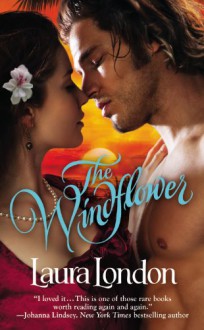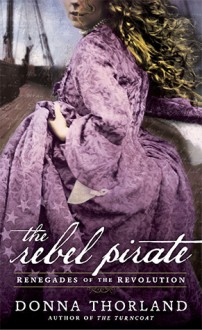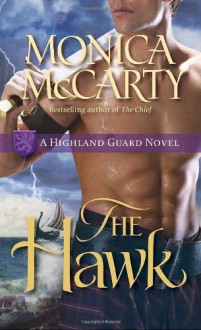
Wow. It's hard to even know where to begin to review The Windflower. Written in 1984 by husband-and-wife team Tom and Sharon Curtis, Windflower is one of the most famous books in the romance canon. It's gone in and out of print several times, and in between releases, it wasn't unusual for used copies to sell for hundreds of dollars, since demand for the book remained sky high even in times of scarcity. Rereleased (for the first time in ebook form) this spring in honor of its 30th anniversary, Windflower faces a new generation of romance readers (like me) who tend to be skeptical, even contemptuous, of the rape-y conventions of old skool bodice rippers of the 1970s and '80s. I approached this read with trepidation, doubtful that it would live up to the hype, because virtually every attempt I'd ever made in the past to read "vintage" romance ended with disappointment at best and mad feminist fury at worst.
Hoo-boy, but Windflower was a revelation. Yes, it is a product of its time. The prose is unabashedly florid, even tending toward purple, especially in the love scenes:
Under the press of his body, Merry ached in colors... she tingled every hue in the prism. The world was a collection of sweet and vivid light beams, and she was one of them, and mindless, a spinning miscellany of liquid cells.
(p. 155 -- Huh?) The heroine, Merry, is such a perkily innocent Mary Sue that when Alexis Hall reviewed Windflower for Dear Author, he changed her name to Rainbow Sparkles. The plot is full of over-the-top WTFery: spies, kidnapping, pirates, man-eating crocodiles, betrayal.
In other critical respects, though, Windflower subverts the old skool conventions, most notably with respect to sexual consent. On the surface, Windflower follows the old skool trope of the kidnapped virgin at the mercy of pirates, her virtue ever in jeopardy. The hero does threaten to rape her, and worse, to throw her to the crew to be gang raped by the lot of them. But it doesn't take very long before the reader realizes that these threats are all talk, and neither Devon (the hero) nor the crew would ever follow through. Even at his angriest, most alph-holey moments, Devon's threats are belied by descriptions of his character and his demeanor--he is constantly described as 'kind', 'gentle', 'compassionate,' "infinite in [his] ability to warm and reassure"--so the reader gets the sense that whatever he may say, Merry's virtue isn't in any real danger. Likewise, while we're told, along with Merry, that the pirate captain and crew are rough, dangerous men, fond of raping and pillaging and drinking and mayhem, what we actually see is a remarkably clean and organized crew that functions as a democracy, indeed, almost as a family, and to a man the pirates protect, support, and educate Merry at every turn. (And, boy howdy, is Merry sadly in need of educating!)
The second, less obvious but to me more fascinating, way that Windflower subverts old skool convention is in the character of the pirate captain, Rand Morgan. Readers of vintage romance will probably recognize that, in that era, a character revealed to be bisexual was invariably also a villain, as if bisexuality somehow functioned as code for "Unspeakably Evil." Windflower's plot unfolds very methodically, and the reader learns that Captain Morgan is bisexual (indeed, that he bought a traumatized teenaged boy from a brothel to serve as his lover, so he's not only bisexual but a pedophile), and that he is secretly orchestrating much of the drama befalling the other characters (including Devon and Merry). In the absence of information about his motives (which comes only much later), Morgan initially appears to fit within this bisexual-man-as-shadowy-villain trope. However, as the plot unfolds, the reader begins to question these assumptions, and even to question whether Morgan and Cat (the aforementioned traumatized teen) actually have a sexual relationship at all. (I vote yes.) In the end, one questions the methods of Morgan's Machiavellian manipulations, but at least his motives appear (mostly) benevolent.
Indeed, Morgan, Cat, and some of the other secondary characters (ahem, Raven) made The Windflower the compelling, timeless story it is, much more so than the romance between Merry and Devon. One tires of Merry's perpetual naiveté, the pirates making ribald jokes that fly right over her pretty little head, her repeated, fumbling escape attempts that inevitably end in ignominious failure. Devon isn't tiresome, but neither is he particularly interesting, either as compared to the other leading men in The Windflower or to other heroes in the Romance Canon: he's a privileged English peer (a duke, no less) whose power and influence is never questioned, and who has faced no real adversity. While both Merry and Devon grow as characters and the bond between them is convincing, it isn't particularly satisfying, and it definitely isn't what has driven the Windflower's enduring success over the past three decades.
No, instead, most readers (including me) are entranced by Cat, who is probably the most interesting and compelling character I've encountered in the entire romance genre, charmed by the winsome young Raven (conscripted into the pirate crew from a captured whaling ship when he was only 12), and intrigued (and at turns repulsed) by the manipulative Captain Rand Morgan. There is so much to this book, and these characters, that I don't think it's possible to absorb it all in a single reading: no wonder so many fans put The Windflower on their "keepers" shelf and read it again and again.


 Log in with Facebook
Log in with Facebook 








